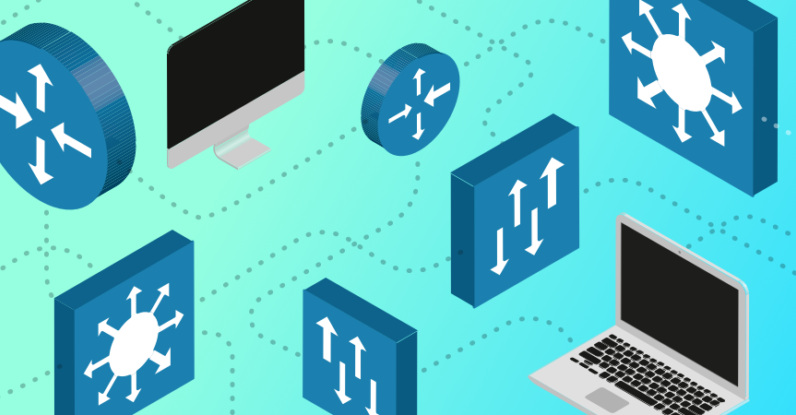
Many business professionals who are seeking the most cost-effective and efficient solutions for their networks are unclear about the differences between Virtual Private LAN Service (VPLS) and Multiprotocol Label Switching (MPLS) and the benefits they provide. While they are two different concepts, they work together to provide an efficient and cost-effective network solution for a growing number of organizations.
What is MPLS?
MPLS is a type of communication used within a network. It is used to send data and network traffic along the most efficient routes, which may be predetermined and are communicated using labels. Packets are carried on predetermined routes along pseudowires (emulations of point-to-point connections) through Label Switch Routers (LSRs) until they arrive at their destination. Using a high-level analogy, this can be compared to a package dropped off at UPS with a shipping label. It goes efficiently (most of the time) from one location to another until it reaches its final destination.
Without MPLS, each router in a path would have to look up a packet’s next destination in long tables with complex entries before being passed on to the next stop or router. Using MPLS, routers don’t have to parse through long tables. Instead, each router places a label on a packet that lets the next router know where it’s going. This makes the network slightly more efficient.
However, the real benefit of MPLS comes from traffic engineering. Although a packet may have a predetermined optimal path, this path may be congested at times, and some data needs to get to its destination more quickly than other data. For instance, voice or video data needs to get to its destination as quickly as possible to be effective. When using MPLS connections between sites, data can be prioritized within a network using markings, and the optimal path can be communicated before a packet begins its journey. This is what the industry refers to as Class of Service (CoS) or Quality of Service (QoS) markings, and this is ideal for companies that use a variety of applications. Another major benefit of traffic engineering is path protection. For instance, a predetermined secondary path is in place so that if the primary path fails, the failover time to the secondary path is almost transparent.
What Is VPLS?
Unlike MPLS, VPLS is not a form of communication. VPLS is a service that uses MPLS and Virtual Private Networking (VPN) to securely and seamlessly connect multiple LANs over the Internet, making them appear as if they were all on the same LAN. This allows internal routing protocols to be utilized (OSPF, EIGRP, IS-IS, etc.).
VPLS works by creating a virtualized Ethernet switch at the provider’s edge to link remote sites. VPLS happens at Layer-2, and the carrier builds out the network, but the customer can do their own routing if they wish. This approach is ideal for companies that have multiple data center footprints and office or store locations that require low-latency, low-jitter connections between sites.
The Advantages of a VPLS/MPLS Network Solution
Companies that choose to implement a carrier-provided VPLS solution want the best of both worlds. They often have multiple geographically dispersed locations and want the ability to utilize CoS/QoS markings as well as internal routing protocols.
When deploying VPLS, a company reaps the cost benefits of Ethernet combined with the security of a VPN, while also being able to utilize QoS characteristics within their networks. The Layer-2 multipoint VPN allows multiple sites to be connected in a single-bridged domain over a provider-managed MPLS network. A VPLS network using MPLS provides a multipoint mesh configuration and can transport IP and non-IP traffic.
Data Foundry’s Senior Network Engineer, William Knobles, says, “a VPLS solution from Data Foundry provides a high-level of flexibility and resiliency to our customers and enables them to meet ever-changing business requirements.” Many colocation customers are unaware that Data Foundry can set up a Virtual Private LAN Service for them. Contact us for a network consultation, or visit our network services page.
